Top Diets for Losing Weight After 60: Maximizing Health and Longevity
Top Diets for Losing Weight After 60: Maximizing Health and Longevity

Weight loss for seniors is a popular topic, and for good reason – losing weight is difficult at any age, but although it may be even more challenging as you get older, it’s not impossible.
Keeping a healthy weight can become more challenging as you get older, but with the right approach to healthy eating and exercise, you can still reach your weight loss or weight maintenance goals. You’ll be able to tackle those extra pounds and improve your health at the same time. Read on to find out how to battle the bulge with weight loss tips created especially for those over age 60.
When a panel of health and nutrition experts rank U.S. News Best Diets, they consider a variety of factors including – but not limited to – weight loss. Now, four panel members weigh in on good diet options for seniors.
Weight Loss Goals After 60
We can’t push pause on our life clocks, but we can help to slow down the process of aging by taking a closer look at what we put in our bodies, not just on them. As with most important things in life, balance is key, so don’t skip meals and don’t avoid entire food groups
Just take it from registered dietitian and nutritionist Maye Musk, who in her 70s, is a supermodel in high demand on runways and magazine covers. Musk attributes her daily sensible plant-based eating plan, similar to that of the Mediterranean diet, for her youthful skin and energy level that's similar to models half her age. "My healthy diet has served me well over the years," she says.
If you’re an older adult exploring possible new eating plans, consider these qualities:
- Figure out your nutrition needs.
- Eat plant-based meals.
- How many calories do older adults need?
- Set realistic weight goals.
- Don't skip the protein.
- Key nutrients you need for weight loss.
- Keep your diet simple.
- Consider the MIND diet.
- Heart health and the keto diet.
- Manage diabetes.
- Keep hydrated.
- Listen to your body.
- Stay motivated.
Figure Out Your Nutrition Needs
While there isn’t a one-size-fits-all diet for any age group, online Dietary Reference Intakes (DRI) calculators can help you estimate your daily goals for many nutrients. Keep in mind that these calculators don’t know your health history. Your activity level is also important, especially as many older adults are active and working well into their 70s or beyond, which results in different nutritional needs.
That means dietary needs can vary. “As a geriatric dietitian, I tend to work with older adults who are less well,” says Katie Dodd, a board-certified specialist in gerontological nutrition and owner of The Geriatric Dietitian, based in Medford, Oregon. “So, a lot of what I’m helping them with is getting enough food to stop unintended weight loss, prevent malnutrition and muscle loss and all the things that go with that.”
Diabetes, high blood pressure and congestive heart failure are common health issues in the older population, although malnutrition remains Dobb's overarching concern. After all, malnutrition can accelerate muscle and bone loss, leading to:
- Decreased mobility.
- Stooped posture.
- Decreased strength.
- Falls.
The DASH, Mediterranean and Mayo Clinic diets stand out as smart choices for older adults, according to Amy Campbell, a registered dietitian, diabetes educator and clinical diabetes program manager for a virtual diabetes program, a client of Good Measures in Boston. She points out that all of these diets are good for weight loss and managing conditions such as diabetes and high blood pressure.
Campbell also points out potential challenges to good nutrition. ”Other factors can make it difficult to eat healthily as you get older, including problems with chewing or swallowing, decreased mobility – which can make cooking and shopping challenging – changes in smell and taste and less income that can make it challenging to afford food."
Campbell generally recommends a well-rounded diet with plenty of protein. That means making the most of your calories when you're trying to lose weight, rather than embracing monotonous eating habits, like cereal for dinner every night or making entire meals of toast and tea. “You don’t need animal protein in every meal." Campbell praises lentils, beans and chickpeas as great sources of inexpensive plant-based protein.
Eat Plant-Based Meals
“You don’t need animal protein in every meal," says Campbell. She praises lentils, beans and chickpeas as great sources of inexpensive plant-based protein. U.S. News ranks the Mediterranean and flexitarian diets in the top spots among the Best Plant-Based Diets. Incorporating fruits, vegetables, whole grains, legumes, nuts and seeds into your diet ensures you’ll also benefit from healthy nutrients and antioxidants.
Campbell says seniors often need more fruits and vegetables than they eat, adding that purchasing healthy produce on a limited budget is possible. “Frozen fruits and vegetables can be cheaper and sometimes even healthier than fresh, depending on where they’re shipped from,” she says. Canned produce can also be OK, she explains, if it is low in added salt.
How Many Calories Do Older Adults Need?
Campbell says older women generally need anywhere from 1,600 to 2,200 calories per day, depending on how active they are. For older men, the range is 2,000 to 2,800 calories per day.
Unintended weight loss can pose health risks, while a lack of activity and calorie-laden meals can lead to excessive weight gain.
Obesity is one issue for seniors, Campbell says. “People are living longer, so we’re seeing more of it in older adults,” she explains. “As we get older, our calorie needs go down. People don’t need to eat as much as they did when they were 20 or 30.”
A balanced diet with moderate portions of protein, carbs and healthy fats will reduce empty calories and encourage weight loss more safely than extreme eating plans, like low-carb or keto diets. Similarly, Campbell says, a very low-fat plan like the Ornish diet might be less appropriate for seniors’ needs and more challenging for them to follow.
Set Realistic Weight Goals
Being realistic about your weight loss goals will help you stay on track when the going gets tough. Certain diets, especially those that promote fast weight loss, might not be best for older adults – even for an active older adult.
One widely-used indicator of health is the body mass index, or BMI, which considers both weight and height. Your BMI falls into one of four categories:
- Underweight when your BMI is less than 18.5.
- Normal, or 18.5 to 24.9.
- Overweight, or between 25 and 29.9.
- Obese, when your BMI is more than 30.
But BMI is not the only measure of healthy weight. Muscle conservation is also more important at this stage of life, Dodd says, because of sarcopenia: the loss of muscle mass with age. “It starts, typically, around our 30s, and our muscle mass continues to decline with age,” she says. So, for older adults, “I’m more concerned about their body composition and their muscle mass – because we know that older adults have less muscle mass than younger adults.”
Most people lose muscle when they lose weight, particularly if they’re not under medical supervision. As a result, weight loss can be detrimental for an older individual, Dodd says.
“While their weight might be down, they’ve now caused themselves to have less muscle, which increases their risk of falls, going to the hospital, early death, early disability,” Dodd says. “So, in the older adult population, I don’t typically recommend weight loss. It’s more about weight stability.”
Other dietitians feel weight loss is a fine goal for robust and active older adults as long as they set reasonable goals and keep nutrition in mind when planning meals.
Dodd and others recommend prioritizing these aspects of wellness as you age:
- Maintaining a healthy weight.
- Choosing whole, unprocessed foods.
- Following a healthy and consistent eating pattern.
- Choosing physical activities that you enjoy and doing them often.
Don't Skip the Protein
Several nutrients are essential for older adults. “No. 1 is protein,” Dodd says. “We need protein to maintain muscle mass. Along with resistance exercise, protein helps to prevent muscle loss." Frail, older adults also face heightened health concerns, Campbell notes, and a lack of protein puts people at risk for lower immune function and osteoporosis.
An adult who weighs 150 pounds needs about 55 grams of daily protein, or 0.8 grams per kilogram, according to the U.S. Department of Agriculture's dietary reference intake.
However, some experts suggest that older adults need more protein: up to 1.6 grams per kilogram or 110 grams daily for a person around 150 pounds. It's best to split protein throughout the day, and many dietitians advise their clients to shoot for approximately 30 grams at each meal. Good protein sources include chicken, fish, tofu, beans, chickpeas and nuts. Regardless of whether you choose animal or plant-based proteins, it’s important to choose lean or low-fat options.
Key Nutrients You Need for Weight Loss
Many people don’t realize that nutrients, including vitamin B12, vitamin C, iron and vitamin D, also play essential roles in building and maintaining muscle.
While older adults need fewer calories than younger individuals, nutrient needs either remain constant or increase over our lifetime. In particular, critical nutrients for older adults include the following:
- Protein to preserve muscle mass.
- Calcium to help counteract bone loss and osteoporosis.
- Vitamin D for overall mental and physical health.
- Fiber to reduce disease risk and promote regular bowel movements.
Dr. Michael Davidson, director of preventive cardiology at the University of Chicago Medical Center, sometimes sees iron deficiency in frail, older patients. “They don’t eat enough red meat; they don’t get enough iron in the diet,” he says. Although the paleo diet was lower-ranking among the Best Diets, he says that “it could be a good diet. It’s had a little bit of a hype to it, but the principles are not far off, such as people eating more complex carbohydrates and more lean meats.”
He also points out that constipation can be an issue for seniors on a low-carb, low-fiber diet, making fiber-rich complex carbohydrates especially important. Drinking an adequate amount of fluid when focusing on high-fiber foods is also essential.
Calcium and vitamin D, as well as a diet rich in fruit and vegetables, can help to reduce the risk of fractured bones. This doesn’t necessarily mean that you need to be drinking cow’s milk, either – soy foods, including tofu and soy milk, nuts such as almonds, beans, lentils and whole grains are also good sources of calcium. Fruits and vegetables are also important for bone health. According to one study, eating just one serving of fruits and vegetables every day can reduce the risk of bone fractures.
Meanwhile, the risk of osteoporosis and fractures is increased by:
- Alcohol abuse.
- Excess vitamin A from vitamin supplements or some fortified foods.
- A high-sodium diet.
- Being underweight.
- Smoking.
- A sedentary lifestyle.
Keep Your Diet Simple
Davidson says WW/WeightWatchers and diets with similar structures score well in the Best Diet rankings because of their simplicity.
With WW, for instance, foods are assigned different points, and you aim to stay at your daily target based on gender, weight, height and age. "You don’t have to do a lot of thinking about the balance of foods or menu plans,” Davidson says, which may benefit seniors who struggle with meal planning.
Long-term compliance is also an important factor in ranking diets, Davidson says. “It’s really more about variety and food choices, as opposed to portion sizes, that are applicable to an elderly individual," he explains.
Cost can be an issue for seniors on fixed incomes, so free weight-loss programs without extra costs, such as the flexitarian and DASH diets might be better options.
Keeping it doable is important, Campbell adds. “For diets in general, it’s best to try and make it fit comfortably into a person’s life – ones that promote good health but are as easy to follow as possible," she explains.
Making drastic changes in eating patterns is challenging for everyone.
“We’re all creatures of habit,” Campbell says. In addition, most diets offer plenty of online and printed resources, but they can be overwhelming. “It’s hard sometimes to pick up a book and say, ‘What should I be eating?'" It can help to work with a dietitian to clarify information and prioritize goals.
Consider the MIND Diet
In terms of eating plans, “there are few that always stand out as kind of the classics that are really good for anyone regardless of age,”
Dodd says. Experts often recommend the Mediterranean and DASH diets as fitting the bill. “But one diet that is really helpful for older adults is the MIND diet,” Dodd adds. The MIND diet combines the science-backed Mediterranean and DASH diets, both known for their cardiovascular benefits, to help prevent dementia. The MIND diet is customizable for various lifestyles and dietary needs, including individuals with diabetes.
“There’s been a lot of research behind the MIND diet, and it’s been found that (it) can reduce the risk of Alzheimer’s disease,” Dodd says. “So, it’s a good healthy eating pattern, but it could also help with brain health, which is always important as we age.”
The MIND diet includes eating these foods weekly:
- 21 servings of whole grains.
- 2 servings of berries.
- 3 servings of beans.
- 6 servings of leafy greens.
- 7 servings of other vegetables.
- 2 servings of poultry.
- 5 servings of nuts.
- 1 serving of fish.
What won’t you find in this diet? Refined grains and processed foods, which may increase the risk of memory loss.
Heart Health and the Keto Diet
Preventing or managing cardiovascular disease is important, especially as we age, which is why U.S. News ranks diets for heart health. Popular, heart-healthy eating plans include flexitarian and volumetric diets.
One diet that can work for shedding weight but may have drawbacks is the keto diet, which which focuses primarily on eating fat with some protein and very little carbohydrate. One of the pitfalls with this diet for people over 60 is inadequate protein, which can lead to a loss of muscle mass, Campbell explains.
The keto diet may also negatively impact your cholesterol.
“Although the keto diet is gaining in popularity and can be a highly effective approach to weight loss, some patients may experience a marked increase in LDL cholesterol – especially with the carnivore keto plan,” Davidson says. “If the patient wants to maintain a keto diet, I recommend checking a lipid profile and then adjust the diet to reduce the amount of saturated fats – butter especially.”
A lipid profile or panel is a simple blood test measuring cholesterol and triglyceride levels in the blood. If a patient’s “bad” LDL cholesterol is elevated, Davidson advises replacing saturated fats with healthier fats. Easy ways to work in omega-3 polyunsaturated fats is by choosing fish or flaxseed, while monounsaturated fats are in avocado and olive oil.
Manage Diabetes
“Of the ranked diets, both DASH and the Mediterranean diet can help people with both diabetes prevention and management,” Campbell says. These diets work because they encourage a variety of foods and make people aware of the amount and types of carbs they consume, she adds. Both diets are mentioned in the latest nutrition guidelines from the American Diabetes Association.
Other highly ranked diets, such as Jenny Craig and WW, also address diabetes. Jenny Craig offers a diabetes weight loss plan designed for people with Type 2 diabetes. WW's PersonalPoints program can be tailored to meet the needs of those with diabetes.
Some community programs, such as local YMCA offerings for diabetes prevention, can help people lose weight as part of diabetes risk reduction, even when participants are in their 70s.
Keep Hydrated
The ability to recognize thirst can decline with age, so drinking enough water, regardless of whether you feel like you need to, is important for preventing dehydration. Fluids such as soda or fruit juice add a lot of calories, Campbell notes, and are unsuitable for people with diabetes. Instead, she suggests sugar-free flavored water or water with a slice of lemon.
She has good news for coffee and tea lovers: Caffeine is less dehydrating than once thought. “Plus, coffee and tea have potential health benefits, including a lower risk of some cancers, heart disease, stroke and Type 2 diabetes,” she adds. “But, check with your doctor as to how much caffeine is safe for you to consume."
As we age, we do not tolerate caffeine the same way, and some medications or health conditions can alter the way that the caffeine we consume affects us.
Listen to Your Body
Although a reduction in appetite is health risk for many older adults, those trying to lose weight may benefit from this change, which often comes with age.
“Many clients I work with who are 70 and older just report not being as hungry,” says Elisabetta Politi, a certified diabetes educator, dietitian clinician and health and wellness coach with the Duke Lifestyle and Weight Management Center in Durham, North Carolina. “In a way that helps because it’s so hard to help someone lose weight when they’re always complaining they’re ravenously hungry – which is more of an issue with the younger population.”
Politi takes clients’ age into account when tailoring weight-loss approaches. She considers areas of vulnerability, which continue to include a higher risk of contagious illnesses, such as the flu and COVID-19, among older adults.
“You really want to advise them to lose weight cautiously because you don’t want to compromise their immune system,” Politi says. Very restrictive diets can cause fatigue, which may further decrease the likelihood that an older adult will be active – which may already be a challenge because of issues with mobility or pain, often originating in the knees and back.
An individualized approach is also important, Politi says. That includes honoring personal preferences and looking realistically at the food preparation and cooking effort involved with any particular diet. For some, she says, home meal delivery kits specialized for seniors can be a useful shortcut.
Stay Motivated
Older adults want effective eating plans – otherwise, what’s the point?
“I try to find something sustainable, which takes into account their lifestyle and preferences, but that will yield results,” Politi says. She understands the frustration of changing your eating and following popular exercise tips but not seeing that effort reflected on the scale. Unfortunately, this is a more common scenario among older adults. Metabolism slows as we age, making it more difficult to burn calories and lose weight.
Politi says that balanced diets that encourage weight loss without negatively impacting energy, health or immune systems, such as the MIND diet, are good options. And make sure to mix in exercise to remain motivated.










